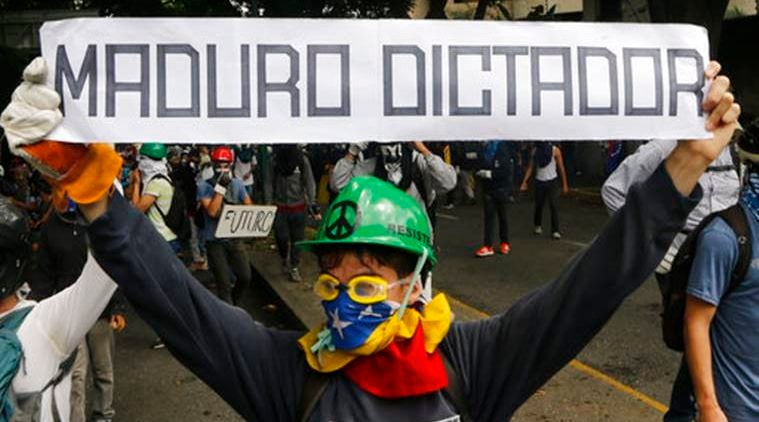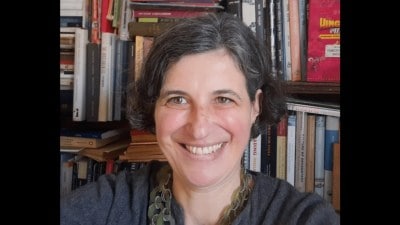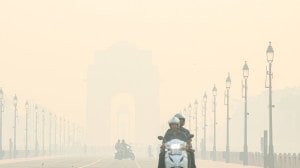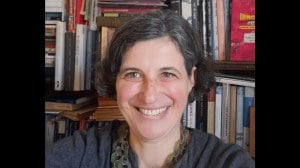What is the Venezuela economic, political crisis and protests all about?
38 protesters and one policeman killed. What is the Venezuelan crisis?
 Opponents to President Nicolas Maduro attend an opposition May Day march in Caracas, Venezuela. (AP Photo)
Opponents to President Nicolas Maduro attend an opposition May Day march in Caracas, Venezuela. (AP Photo)
Venezuela took a sharp turn on March 29 this year when, amidst full-blown resentment against the ruling party and the president Nicolas Maduro, and a severe economic crisis, the Supreme Tribunal of Justice (TSJ) dissolved the National Assembly and officially took over its legislative powers. With the tribunal comprising Maduro’s supporters, the move rendered the nation a one-man dictatorship. In the weeks after that, the country saw the worst protests which killed 36 people and one policeman. More than a month after the decision, the country is still seeing protests.
Even though the TSJ’s decision was reversed on April 1, public discontentment did not water down and marches continued throughout the country. Only the Venezuelan capital Caracas saw peaceful protests – protests in all other cities were rife with clashes between the police and the protesters leaving many injured.
The reason for protests in Venezuela are primarily two-fold. They started with frustration against the economic policies of the government and the lack of basic necessities for most of the population. By 2016, it also became a political protest.
The Beginning
The protests of 2017 did not begin just at the TSJ’s decision. According to reports in various international media, Venezuela has been in growing crises since the death of former President Huge Chavez in 2013. Nicolas Maduro took over right after the death, securing a narrow election victory. The next year, in 2014, an oil crisis occurred that caused oil prices to reduce significantly. An oil-rich Venezuela was affected by this and entered recession in 2014. Safety and security of citizens was at an all-time low. A local news report published by El Universal March 2014 estimated almost 3000 homicides in the months of January and February in Venezuela. Former Miss Venezuela Monica Spear and her husband were murdered in a daylight robbery in January of the same year. This triggered small protests that gathered steam after a campus rape in San Cristobal. The 2014 protests killed 43 people.
At the same time, the food shortage was severe; a 2016 Venezuela’s Living Conditions Survey conducted by ENCOVI found 75 per cent of the population had lost up to 8.7 kg of weight due to lack of the required nutritious food. According to reports, the last elections held in the state were the Parliamentary State Elections in 2015 that showed increasing unpopularity for the ruling government. After that, presidential elections have been delayed. According to a report in CNN, Maduro has delayed elections because he is afraid the outcome will not be in his favour.
 The Supreme Tribunal of Justice building in Caracas. (Wikipedia)
The Supreme Tribunal of Justice building in Caracas. (Wikipedia)
The opposition vied for a referendum on the president in May 2016, a call that almost succeeded. However, electoral authorities halted the efforts to hold the referendum by declaring all collected signatures for the referendum as invalid. That marked an important point in the bludgeoning political crisis of the country.
The Vatican too stepped in and negotiated between the opposition and the government. However, in December 2016 the opposition cancelled this intervention as the government would not accede to its demands of a new election. A news report stated that three in four citizens were unhappy with the president in 2016.
2017 protests
In January, Maduro’s government arrested many opposition leaders including former general Raul Baduel on the accusation of attempting to overthrow the government. In February, he also announced that the Bolivarian National Militia will be used to stop or counter protests being conducted by citizens. True to his word, all kinds of force has been used against protesters, a move that reached the hilt in April and May. Before that, however, the dialogue between the government and the opposition was cancelled owing to the arrests of the opposition leaders.
The TSJ’s decision to dissolve the National Assembly invited wrath from the Opposition who said the action was a “coup”. Even though the decision of the TSJ was reversed, protests continued. Maduro’s government treated the protesters with rubber bullets, tear gas, and firings at point blank range.
 People attend a session of the Venezuelan National Assembly at a sports park in Caracas, Venezuela. (AP Photo)
People attend a session of the Venezuelan National Assembly at a sports park in Caracas, Venezuela. (AP Photo)
Maduro refers to the opposition as “vandals and terrorists”. On April 7, main opposition leader Henrique Capriles was informed that he had been banned from public office for 15 years, rendering him incapable of doing any government or political work. An Al Jazeera report stated the reason given to him was “administrative irregularities” when he served as Governor.
Rewriting Constitution
On May 1, Maduro signed a decree to rewrite the Constitution. The opposition called it a ploy to cancel regional elections that are scheduled for this year and Presidential elections that are scheduled in 2018 as surveys and CNN reported that polling has indicated the anger against the socialist party. This meant Maduro could potentially lose the elections, were they held. With increasing ambiguity about how or why exactly Maduro intends to change the country’s charter, an NYT analysis says that the move could also weaken the already feeble National Assembly of the country. This could further propel the country into dictatorship. Maduro was also unclear about who would be chosen for the process. Even though he mentioned a voting process, fears remain the his party members will have greater voting powers.
 Venezuela’s President Nicolas Maduro speaks holding a miniature copy of Venezuela’s constitution at the National Electoral Council headquarters (CNE) in Caracas, Venezuela. (AP Photo)
Venezuela’s President Nicolas Maduro speaks holding a miniature copy of Venezuela’s constitution at the National Electoral Council headquarters (CNE) in Caracas, Venezuela. (AP Photo)
Announcement of the decree that allowed the rewriting process was met with even more protests. A total of 36 people have now been killed this year in protests as they were met with opposition from the government.
Economic Crisis in the country
The once rich country’s currency is now valued for less than 10 cents in US, reports The Guardian. The opposition blames Maduro while Maduro blames capitalism. Reports suggest that basic food items like milk, eggs, bread and even toilet paper are not available. There is an acute shortage of medicines as well, with the El Nacional reporting that citizens of Los Ruices who were suffering from chronic diseases had to protest outside a social security pharmacy.
According to data from the Central Bank of Venezuela, the country has only about $10.5 billion left in foreign reserves, a number that was $30 billion in 2011. The oil prices for export are down to half with the inflation expected to reach at 1660% this year, according to CNN.
 An opponent to President Nicolas Maduro holds a sign that reads in Spanish “Maduro dictator,” referring to President Nicolas Maduro, at an opposition May Day march in Caracas, Venezuela. (AP Photo)
An opponent to President Nicolas Maduro holds a sign that reads in Spanish “Maduro dictator,” referring to President Nicolas Maduro, at an opposition May Day march in Caracas, Venezuela. (AP Photo)
International media has described conditions in the country as “brutal” with the citizens receiving the worst of it. With the blame game going on, it remains to be seen how Venezuela will cope. Interventions from the Vatican have been attempted. The United States has expressed concern over the situation. However, no intervention has, of yet, been able to reduce the crisis.



- 01
- 02
- 03
- 04
- 05




























